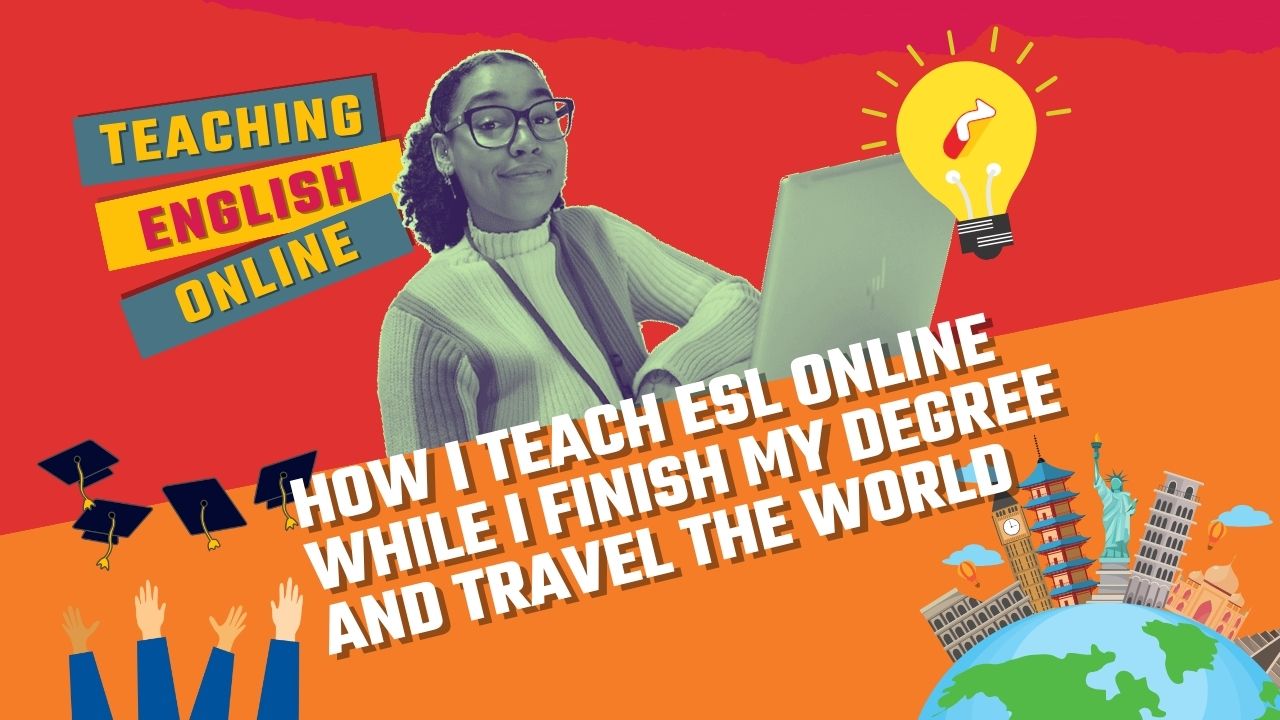In this OnTESOL Graduate blog, Jerry Smith will show you what you need to consider to apply for online ESL teaching jobs and pass the job interview.
Recommended for online teaching jobs: Save 85% on the 20-hour Specialist Course for Online ESL Teachers when you register in the 120-hour Advanced TESOL / TEFL Certificate
Applying for Online Teaching Jobs
Sending your resume to an online ESL company is “old school”. Now, the application process is pretty straightforward. The big names out there will have their own websites with application pages or use a job board that sends them job applications automatically. So, you’ll just complete their online forms and submit them. The OnTESOL Job Board is free for TESOL / TEFL certified candidates seeking online ESL teaching jobs.
After passing the initial stage of the job application, many online ESL schools will ask you to submit a brief introductory video. The occasional few will ask for demo videos, or even sample lesson plans on how you would teach a particular subject. Usually, the schools give you guidelines for those requests. In terms of short intros, they’ll often tell you what they want you to cover, such as your educational background, previous teaching experience, teaching method, and favorite ESL activities.
There are several reasons why they ask for intro videos that are important for you to know:
1. They want to see you.
Most online ESL companies these days utilize live teacher videos in their lessons, so your camera presence is an essential component. A key point here is to smile.
Also, dress like a teacher. It’s advisable not to wear trendy haircuts or clothes that stand out or may be culturally shocking to those ESL companies serving students in foreign countries.
2. They want to see your background.
The popular background is either plain white or a bright uncluttered background. They’ll usually tell you what they expect. So, as much as possible, arrange your location to fit their requirements.
3. They want to hear you.
It’s not just how you look, but also how you sound that is important. Online ESL companies and students do not want ESL teachers who sound like they’re eating their words neither do they want a teacher who speaks too fast, uses a lot of slang, has a heavy accent, or is otherwise unclear in speech. One of the best things you can do is slow your speech (not speak slow) and enhance your articulation and enunciation.
Take note: This is one of the most important factors, so make sure you work on how you sound.
4. They want to check your audio and connection.
Another benefit of requesting intros is that they’ll be able to check your audio quality. For that reason, it’s a good idea to invest in a good headset. Yes, a headset. Please do not use the mic on your webcam—they typically don’t work well in online classroom environments.
That leads to another reason why you should always check your intro before sending it in: You need to make sure your audio sounds crisp, clear, clean, and without buzzing sounds, echoes, or a hollow, tunnel-like sound. You should even check if your audio is working. That’s something I’ve done myself—forgot to turn on the mic and ended up recording a muted intro.
Once you’ve successfully completed your application and clicked on submit, the waiting begins. Some of the bigger online ESL companies will give you a time frame. And if you don’t hear from them during that time, it means they probably don’t think you’re a fit. But, if you do hear from them, it means the next step is the job interview.
The Job Interview

Some companies will do one interview and know if they want to hire you from there. Others may require a couple of interviews, and still, others will require demos. So, how do you prepare for these?
As for interviews, you’ll want to have at least an idea of what to expect. The following will help prepare you for them.
Dress Right
First of all, dress appropriately. A suit and tie or other formal attire are not necessarily expected. But a baseball cap, tank top, or a collarless shirt would not be wise. Just because you may be working from home doesn’t mean you should look homey.
Have a Conversation with the Interviewer
Job interviews are not a time to freeze up in anxiety. Try to approach your interviews from the perspective that you’re having a conversation about you, how you teach, what’s expected of you, scheduling, how you will do the job, and what the company is all about.
From the beginning, try to keep things real. There’s no need to impress the interviewer. Anyway, they’ve probably encountered the whole gambit of personality types and interviewee demeanours. The only thing that’s left is to be you—the individual—the person no one else can be.
Read: 4 Things I Wish I Had Known Before Teaching English Online
Your Teaching Method
In general, companies will ask you at least one or more questions about how to teach grammar, or what you think a good way of teaching the English language might be. This is your chance to show what you know from experience or what you’ve learned from your TESOL certificate course.
Q & A
My advice is to ask a few questions at the end to give the impression you’re interested in the company too. But please, don’t over-focus on pay, hours, and your free time—me, me, me.
These companies have encountered a full spectrum of people and know what to look for. If the focus of your questions is solely on you and what you can get out of them, they may be a little wary of you. But if your questions reflect your interest in teaching, and your interest in teaching their student–customers, it might make a more favorable impression. This is not to say that you should be fake, but a reminder not to focus only on yourself.
Demos
When it comes to demo teaching, follow exactly what the company requests. Do not deviate from it, because you may give them the impression you can’t follow simple instructions.
They might ask you to teach a member of their staff for a full or half class. Or, they may ask you to pretend teaching. Then again, they may ask you how you might teach a certain class or material. These are variables that depend on the companies. But whatever the request, make sure you understand completely what they want. Ask specific questions if you don’t understand. This is important, so you want to get it right.
Read: Teaching Props You Need To Have In Your Online ESL Classroom
Potential Challenges
One of the first challenges you’ll face is not you, but your tech specs. What I mean by that is primarily your internet connection and computer system.
Some companies have strict standards such as the type of internet service (not service provider) you’re using. Typically, a company will not accept wifi as a medium for conducting their classes. They prefer and even require landlines. This is mostly because wifi doesn’t work well with learning management systems. However, there are app companies that require/permit their teachers to use cellphones to teach.
Upload and download speeds are also a little bit of a minefield. Some companies have fixed ranges such as 5-10 Mbps or more upload speeds and the same for download speeds. Don’t be surprised if they require a speed test check and even screenshots of your computer and operating system specs.
One of the best things you can do is make sure your connection and hardware side of the house are the best you can get them. After that, if it doesn’t work out with one company, there may be another one out there that will accept your tech specs. So, don’t give up.
Another potential speed bump is the environment you teach in. It should be free of distractions. Many companies look for a plain white background while others look for sounds that might be a problem, such as dogs barking, children screaming, or even a loud fan. The best thing you can do is try to remove as many distractions as possible. You may even need to find a quiet corner of your house and soundproof if necessary. I know of some teachers who even build their own teaching booths. But if that’s what you have to do—and I’ve been there—it needs to be done.
Recommended TESOL Certification for Online Teaching Jobs
The 140-hour TESOL course package by OnTESOL is valid for ESL teaching jobs online, abroad, and in North America. It includes the TESL Canada-approved online 120-hour Advanced TESOL / TEFL Certificate course and the 20-hour Teaching English Online (TEO) specialist.






Hi, Before I commit to registering for the 120 hours, I am recovering from sick leave with a pending work date and I need to ensure the recommended hours of personal tutoring will be able to be managed. Thank you for responding as soon as possible. Kind regards, Michelle.
Hello Michelle! Our courses are self paced: some students focus full time but others take a slower pace. You will have a maximum of six months to complete the 120-hour course. Your personal tutor will be there to guide you through any questions you might have but is also in charge of grading and providing extensive feedback on each one of your assignments.
Please contact us at info@ontesol.com and an advisor will be more than happy to answer any further questions that you may have.